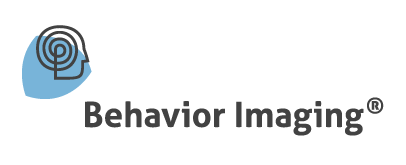Reduced Fee for New Autism Diagnostic Service During April Autism Awareness Month
Drawing on his own experience as a father who had to jump through too many hoops and wait far too long to secure an autism diagnosis for his own child, Ron Oberleitner, president and CEO of Behavior Imaging Solutions, developed NODA™, a new autism diagnostic service, to help other parents get answers and services for their children sooner. In honor of Autism Awareness Month and with hope of alerting more families and physicians to NODA’s availability in Arizona, Behavior Imaging is offering NODA, developed in cooperation with Southwest Autism Research & Resource Center (SARRC) and Georgia Tech, for half price during the month of April.
NODA, the Naturalistic Observation Diagnostic Assessment, is a diagnostic service that uses smartphone technology and a team of licensed clinicians trained for assessing behavior to confirm or rule out autism. The service can be completed within two weeks, rather than the several months to a year or more that families typically wait for an in-clinic assessment. The development partners launched NODA in February, in collaboration with Barrow Neurological Institute at Phoenix Children’s Hospital.
“When you’re concerned something may be wrong with your child, you want answers now,” said Oberleitner, the father of a 22-year-old son with autism. “During Autism Awareness Month and moving forward, we want to put NODA in the hands of as many concerned families as possible, so they can have their children assessed by SARRC clinicians, get the answers they’re seeking, and be guided to the services and interventions their children desperately need.”
Families use NODA in the comfort of their own homes by downloading a smartphone app, then following simple instructions to capture video of their child’s behaviors in prescribed situations. Parents upload the videos to a secure site, then expert SARRC clinicians evaluate the patient’s history, review videos, tag symptoms and typical and non-typical behaviors, and render a diagnosis. Clinicians use a two-way interface, allowing them to interact with parents to ask questions or secure additional information. A diagnostic report and guidance on next steps are issued to the family and can be reviewed with the child’s pediatrician. The report can then be presented to schools and specialty service providers to access needed therapies and services. (See this video that describes more about the NODA process.)
Requirements to use NODA include having access to wireless Internet, and to an iPhone, iPad or iPod. Children must be between the ages of 18 months and seven years. NODA is currently offered as a private pay option. The regular price is $495, but the service is being offered for $250 during the month of April. Future plans are to make NODA available through an insurance payment model and on additional mobile platforms, and to offer health assessments for expanded age groups.
A National Institute of Mental Health (NIMH) grant funded a series of clinical studies, now in final stages, to compare NODA to other widely accepted autism spectrum diagnostic procedures and determine accuracy of results. SARRC and Georgia Tech led the studies, which included participation by 51 families from the greater Phoenix area – some who suspected their child(ren) may have autism, and some whose children exhibited no developmental delays.
Research findings have demonstrated an 88.2 percent agreement between the NODA and the “gold standard” in-person diagnostic procedure. Complete study findings will be available later in 2015.
Physicians may refer parents and caregivers to NODA, or families may access the service directly. To learn more or to sign up for the NODA service, visit behaviorimaging.com/NODA or call (855) 649-NODA.
